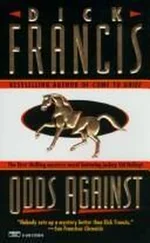“These things do happen,” he said. “They really do.”
“I don’t think anyone’s doubting you anymore,” said Jane, but she seemed very far away. There were blinking bursts of light at the edge of Mitchell’s vision and everything else was getting hazy. Was this the tragedy he’d been preparing himself for all these years, a world-cleansing flood of biblical proportions, straight out of the preacher’s sermon? Every man, beast, fowl, and thing that creepeth across the earth must repent. I’ve spent a lifetime worrying about this moment, doing the calculations, taking the measurements, trying to render catastrophe in calculable, precise dimensions, and still I’m not prepared? But real catastrophe was like that. It was a form of genius. It astounded expectations, was unlike anything that came before.
Whee! shouted the wind. Whee! Wheeee!
He squeezed his eyes and opened them. In order to ignore the frantic Morse code of his heartbeat, and the sweat edging his hairline, he forced himself to concentrate on the task at hand. His mother’s old advice: Do something!
He forced himself to focus on barricading the window. They worked together, Jane holding the slats in place while Mitchell taped them to the window frame. They worked slowly, deliberately, making sure not to leave any gaps, and slowly Mitchell began to breathe. Slat over window, tape, repeat. Slat, tape, repeat. They made progress. Jane glanced at him out of the side of her eye; it seemed she wanted to ask him something but didn’t quite know how to do so.
“Let’s hear it,” said Mitchell finally.
“Don’t take this the wrong way or anything. But why is there a canoe in your living room?”
“It’s actually a work of art. From the New Psychedelia School.”
She nodded, as if giving this serious consideration.
“It was made by a young Nova Scotian woman named Sylvan who collects objects from her natural environment and paints them in unexpected ways, using organic laminates and gold leaf and nontoxic enamel in an effort to capture the eternal unity of—”
“That’s enough,” she said. “What’s going on, exactly? Are you worried that the window is going to blow in?”
“We’re safe here,” he said. “At least for now. I have provisions. I have a Go Bag.”
The wind sobbed. Whaaah! Whaaah! Aaaah! The wind screamed murder.
“You’re in control of the situation, is what you’re telling me,” she said, doing her best impression of Charnoble’s wispy voice. She twisted her finger in her palm. “You’re a man of action.”
“A man of action?” His voice came out bitter and clipped. He tore a strip of duct tape with a loud rip. “A man of action? ”
She put down the wood.
“What was that phone call about?” she said.
“It’s a long, boring story.”
“It looks like we’re not going anywhere for a long time. It’ll get dull if we just have to sit here in silence, listening to the rain and wind.”
“Here’s a question: Do you ever have the desire to do something irrational? Then you stop and think about it for a second and realize it’s a stupid idea. But you actually go ahead and do it anyway?”
“Sure. I mean, I didn’t get any offers out of Wharton. I guess you didn’t know that. Bad timing with Seattle and all. But I came to New York anyway, no money, sleeping in a foldout chair in a Bushwick hallway. I was the only bartender at the All-Ways Lounge with an advanced degree.”
“Yeah, but a Wharton degree — it was just a matter of time. I’m talking about real risk. Something that could ruin you.”
“Why are you asking?”
“Because I don’t know what that feels like. I don’t know if I’m capable of it.”
She looked at him with a strange little smile. “There is one other thing. But I don’t want to scare you.”
“I’m not easily scared.”
“That’s a good one,” she said, and without hesitation she pulled down the collar of her V-neck sweater, revealing the latticed trim of a white bra. A word was tattooed in a neat blue cursive, arcing in a rainbow over her left breast.
“I can’t read it,” he said in a whisper. He cleared his throat and tried again. “It’s too dark.”
She laughed. “Look closer, buddy.”
He moved in, close enough to see the goose bumps on her pale skin and read the word: SLUT.
“My ex-boyfriend’s idea,” she said, snapping her shirt back. “I thought I was going to marry him. Typical Winnetka. We were eighteen. It didn’t bother me because I figured it’d be our private dirty joke. I don’t know why, but it turned him on. I guess I was a romantic back then.”
He nodded gravely, testing with the back of his fingers the tension of the duct tape over the window.
“Are you going to have it removed?” he said finally.
“When my mother saw it she burst into tears, then fell down on the carpet and began to pray. I can’t blame her, really. But I guess that’s why I want to keep it.”
“To piss off your mom?”
“No. Because it’s a reminder of a time in my life when I didn’t care about the future, or silly things like pride or self-respect.”
“Mm. I think I respect you more.”
She punched him on the shoulder. “Yeah, well, now you owe me.”
So he told her about the Zukorminiums. He told her about his mother’s long despair in Overland Park and the Hungarian Revolution that was waged every night in his father’s dreams, his fainting spells at Eight Spruce Street and Lady Madeline, the dazzling skycity of his nightmares, and, at last, Elsa Bruner, the human worst-case scenario. While Mitchell continued to barricade the window, adding vertical pieces for reinforcement — an activity that allowed him to avoid making eye contact — Jane listened. She watched him closely and asked questions. Why, for instance, had Elsa corresponded with him in the first place? In retrospect, he said, it seemed it was because he was the only person she knew who might see through her wild delusions. It was the first time his instincts for disaster avoidance had really been tested, but he had failed her, and the ridiculous girl was now lying comatose on a Maine hospital cot.
By the time his story ended they had finished the window. At Jane’s request, they left a small area of the glass uncovered — a rectangular slot six by three inches — so that they could see what was going on outside. Jane was quiet for a moment, making herself busy by checking whether all the slats were properly aligned and the tape was secure.
In the darkness it was impossible to read Jane’s expression. She turned toward him.
“That girl wasn’t a test. What were you supposed to do, kidnap her?”
“I could have tried.”
“She was having an argument with herself.” Jane shook her head. “No, you haven’t been tested. When you’re really tested, you’ll know it.”
“How?”
There was a tremendous crackling noise. He was afraid to look outside. It sounded like a meteor shower on Third Avenue. The wall thumped. Jane laughed in surprise.
“That’s how.”
* * *
He couldn’t fall asleep — the constant banging was even louder than the pulsing noise in his head — and after twenty minutes he got out of bed and quietly stepped over to the window. He knelt and looked through the slot. After some time an intricate mosaic of lightning filled the sky and he could see that the water had risen. The curb was gone; the few cars still parked on the street were almost completely submerged.
“What do you see?”
Mitchell jerked around. Elsa Bruner was standing behind him. She must have emerged from the canoe. Then he saw the swoop of brown hair and the half-shut eyes, and Elsa’s face became Jane’s face.
Читать дальше












